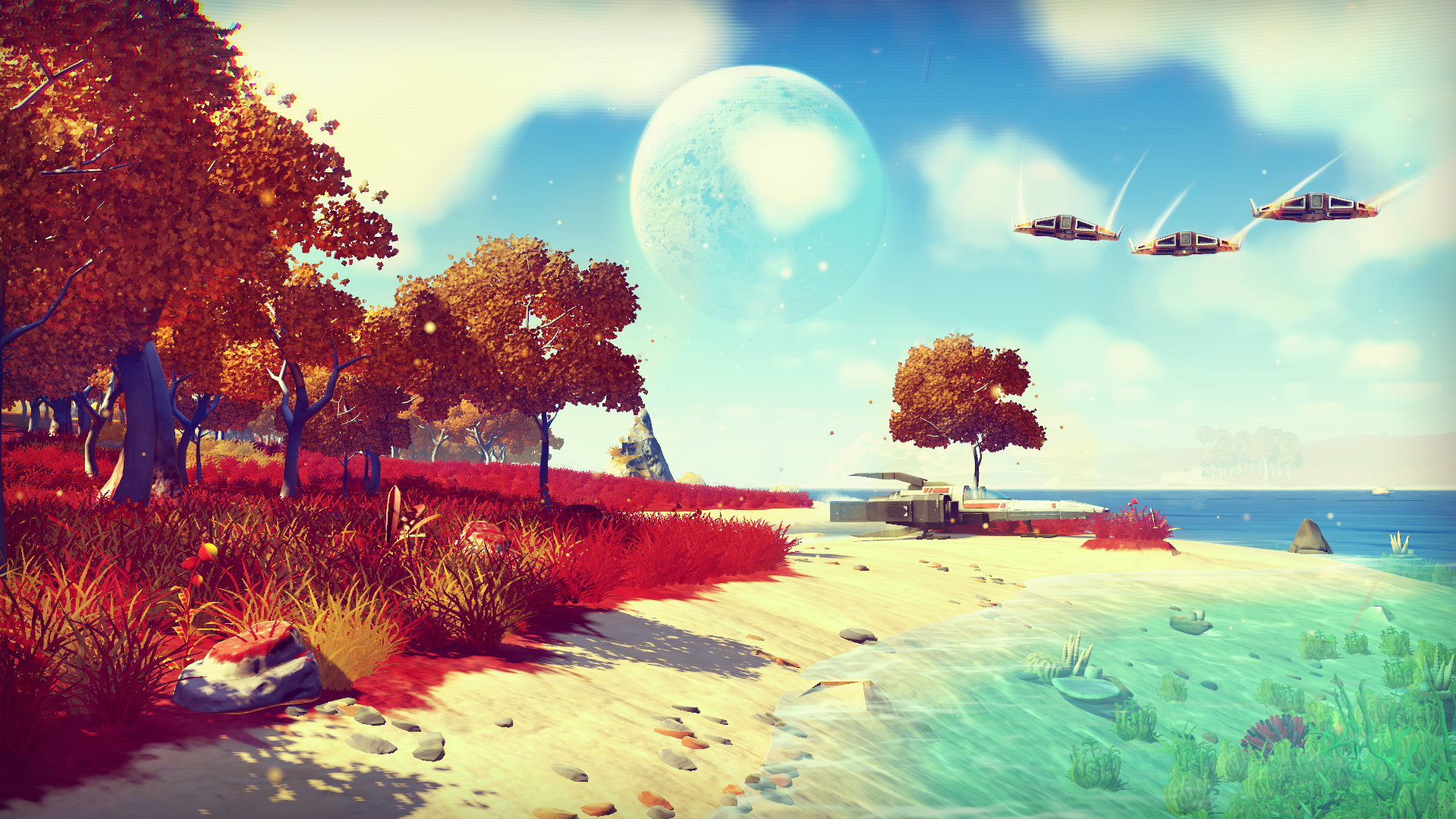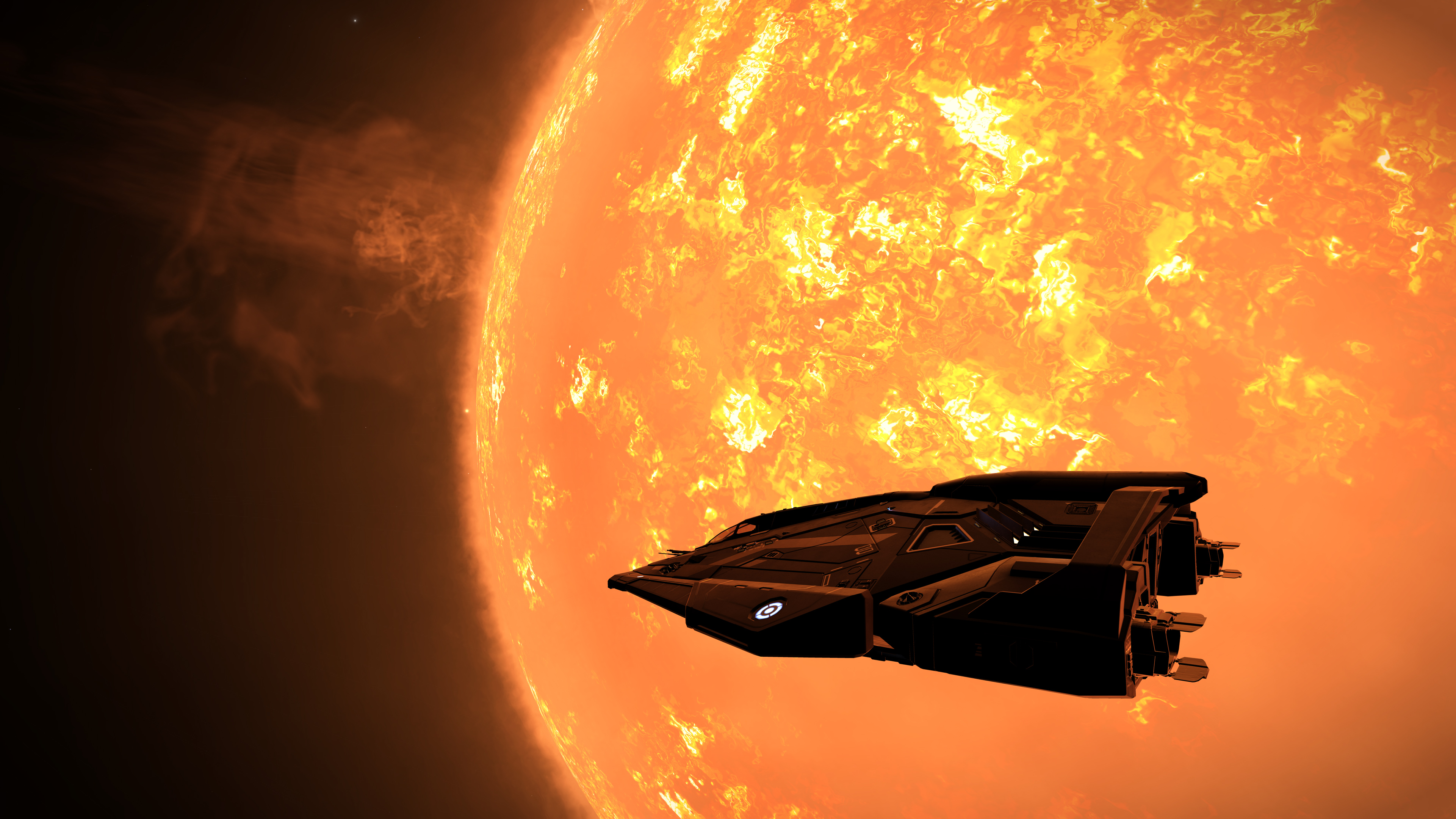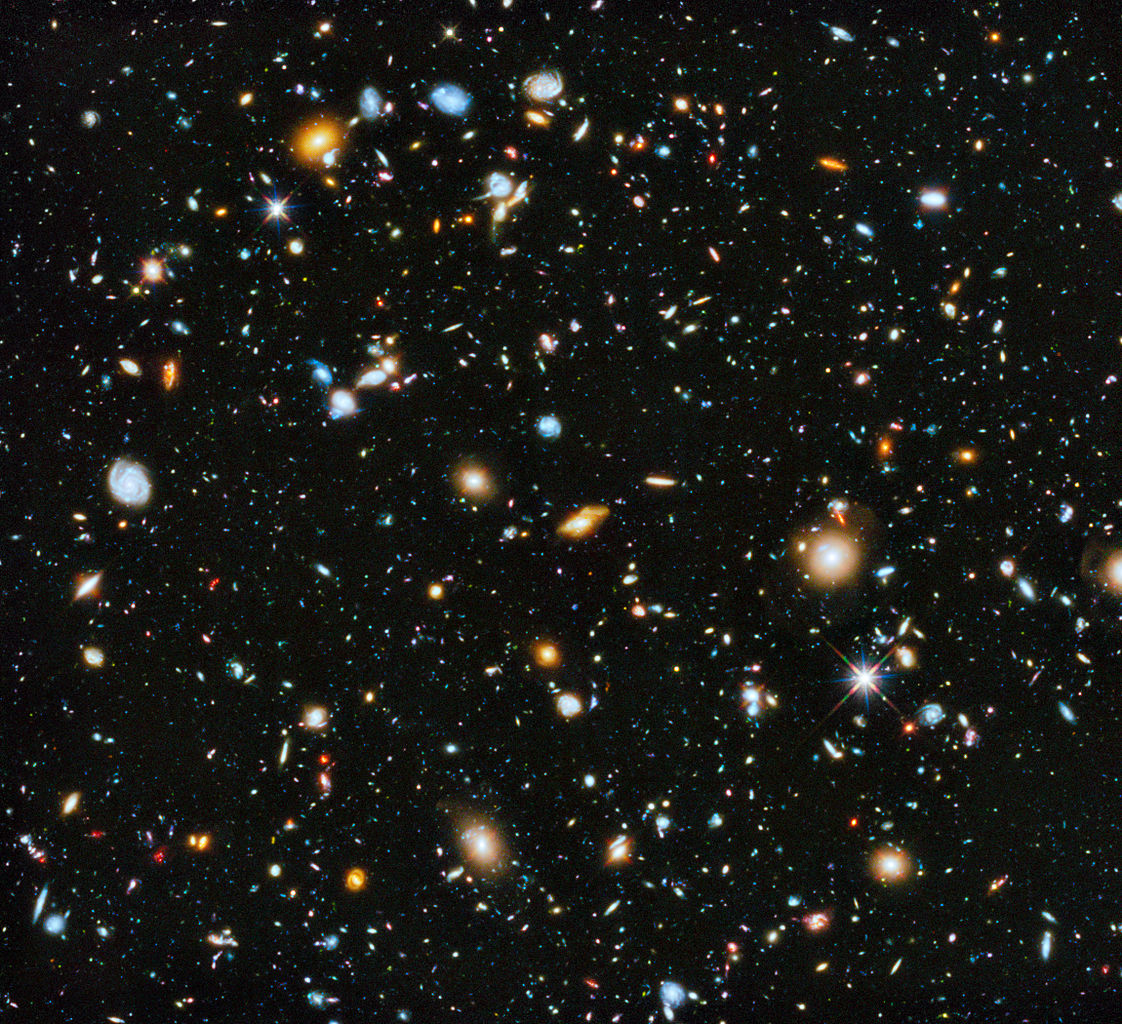Throughout the past few months, I've started to become increasingly interested in space-based exploration games. 2016 seems to be the year of space games. A few notable ones that have gained some publicity in the recent years are No Man's Sky, Elite: Dangerous, and Star Citizen.
I first discovered No Man's Sky from my friends telling me about their announcement at several events, and I've never really heard about the other two games until about a week into the release of No Man's Sky. I've mostly avoided the hype train that No Man's Sky generated as well, so I can pretty much look into these games with a level head.
However, as I looked into these games, I came, I saw... and I rolled my eyes.
Space exploration games exist in this weird state of constant high expectations. And if recent events tells us, sometimes customers and game developers set the bar a little too high. As I learn more things about these three games, there's a reason to be cautious, yet optimistic, about the future of space games in general.
No Man's Sky
So a few days earlier, a good friend of mine gave me Steam Family Sharing access to their library, and in it was No Man's Sky. So I decided to download the game and ironically play it. Knowing that the game will run terribly on my three-year-old laptop, I jumped into the game.
And after playing it for about 3 hours, I threw the game aside. I didn't feel any anger, outrage, or annoyance, as many other people seem to have about the game. I just feel sad.

No Man's Sky has become the posterchild of wasted potential in the gaming industry. We were all stunned at the beautiful vistas of the procedurally-generated planets when it was first shown upon us more than a year ago. I was left speechless at the art style of the game as shown in that announcement, and while I never really bought into the hype, I had some fairly high hopes about the game.
The game promised a vast, massively-multiplayer, procedurally-generated universe where we can do anything, and the possibilities are bound to be endless. However, what's presented in the final product is anything but. Many people were quick to label the creator of the game, Sean Murray, as a liar, due to the number of promised features that were missing from the final game. The Advertising Standards Authority (ASA) even dropped in and launched an investigation into a possible case of misleading advertisement for the game.
There's a number of complaints I've had during my three-hour ordeal with No Man's Sky. Terrible performance, uncomfortable FOV, awkward interface, repetitive gameplay, you name it. I don't even know what happened during the development of the game which made the game in the messy state that it ended up in. It felt intentional.
After I decided I've seen enough, I turned off the game, and all that's left is just pure sadness. It was a shame to see such an amazing potential just thrown out of the window, and how the final product turned out to become just a slightly mediocre version of "Minecraft in space". Being able to experience it first-hand just feels gut wrenching.
Star Citizen
Star Citizen is the odd one out in the list, as it's a game that isn't really out yet, and the only game that I have never physically gotten ahold of. Sure, there are already some half-decent alpha releases lying around, but many are still waiting for its actual release before getting ahold of it.
I've never really heard about Star Citizen until after No Man's Sky was launched, and there are two narratives that I've heard about this game. One is that it's projected to be one of the best space games that will ever hit the market, and the other is that it has gone through many restructuring and controversies throughout its development process.
A few weeks earlier, Kotaku UK published a five-article investigation report regarding what's happening surrounding the game, developers Cloud Imperium Games (CIG), and the development process of the game. I took a good read on the whole report. And from my knowledge, there seems to be two major controversies surrounding the game. One is that CIG allegedly had been misusing their crowdfunding money (which the Kotaku investigation said they found no evidence of it being the case), and the other being how they terribly treated ex-backers and critics of the game in the past.
Reading about the controversies surrounding Star Citizen could've cemented my thoughts about this game in general, but oddly enough, it didn't. From what I've gathered, they're working on a really promising game. Their development process is quite transparent (they have a weekly series on their YouTube channel where they showcase the bugs they've been trying to squash in the game).
They have the same amount of ambition as the other two games are trying to pull off, in fact even more than that, since they're aiming to be the "be all and end all" of space games, and I commend them for trying.
I finally took a look at the gameplay footage they showcased at Citizencon 2016, and I could pretty much assure myself that this is going to be a promising game. I'm still cautious about it, but it's still a promising game nonetheless.
Elite: Dangerous
Of all three, Elite: Dangerous is the only game that I have seen the most enjoyment with. After my sad, three-hour ordeal with No Man's Sky, I decided to cool off by playing some Elite: Dangerous and I thought to myself, "This is exactly what I wanted No Man's Sky to be like."

If the critics were to say anything, the amount of gameplay Elite: Dangerous offers is only a little more than what No Man's Sky offers, but to me, this game is miles better than No Man's Sky. Sure, grinding credits for that one ship you want might become a chore of a task, but at least the satisfaction one can get from, say, finishing high-paying missions, completing dangerous smuggling runs, or even handing in bounty tickets, is still there.
As of the writing of this post, I've clocked about 105 hours in Elite: Dangerous. All of those were spent on exploring the near-realistic approximation of the Milky Way, all while doing some trade runs, bounty hunting with friends, and simply being amazed at the beautiful vistas that the game offers. The game has its relaxing tone in the same way as when you're playing Euro Truck Simulator, which is a perfect game to play if you just need some form of timeout. The Horizons season pass adds in more gameplay features like the ability to land in planets, and the developers are constantly adding new features into the game as time goes.
Elite: Dangerous is one of the most enjoyable games that I've played in years, and I'm sure that this game will keep me content for the next few months.

All of these three games have the same thing in common. They have the ambition to be the game where the possibilities are endless. However, it's unfortunately easy enough for both developers and consumers to be over-ambitious, and when developers can't meet that high expectations, they could flop big time.
Space is large. Space is endless. The idea of this vast, mostly unexplored nothingness gives us high ambitions that one day, we will be able to conquer it. This is what these open-world, space exploration games are aiming for. However, at the current state of it, we might not be ready to face the sheer amount of scale that we're undertaking. It's why No Man's Sky failed, because it failed to understand its own expectation and pretended that everything is fine despite their limitations.
However, there's still a reason to be optimistic. Massively-multiplayer games like EVE Online has garnered a significant amount of loyal fanbase, Elite: Dangerous is constantly evolving, and a lot of people believe in the idea of Star Citizen that they put their money towards the completion of the game. These games show that a really good space exploration game still an interesting goal to achieve, and attempted shooting for the stars. Even if some of them came crashing back to earth, others will manage to pull it off.
Which is why I'm still glad games like these exist. Yes, even No Man's Sky.